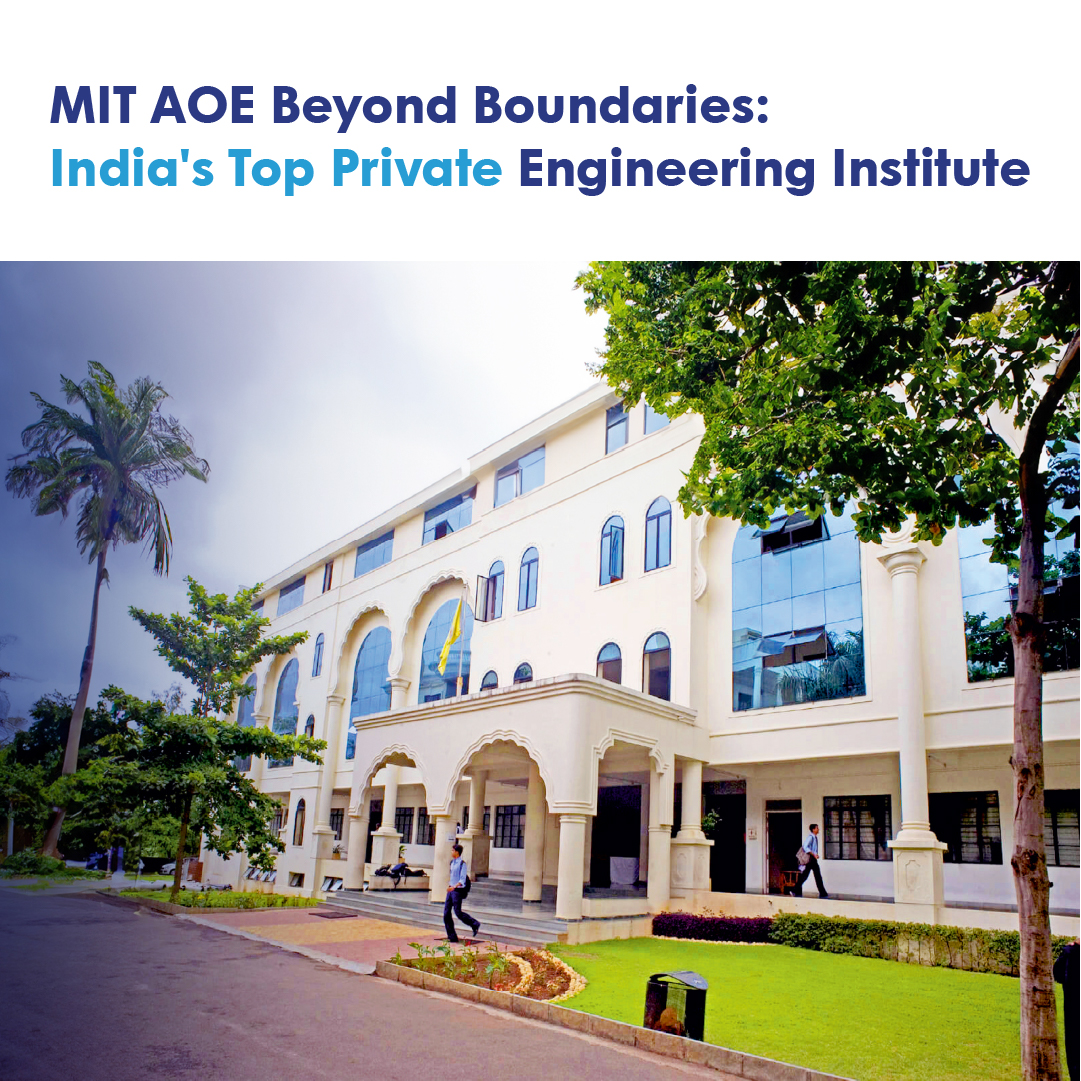Autonomous College vs. Private Engineering College
Still confused to make your choice amongst the best engineering colleges in India? It can be challenging!
Among the plethora of various choices, autonomous colleges, and private colleges emerge as the two leading choices. With an approximate 979 autonomous colleges in India, it is important to make a more informed decision between autonomous college vs. private engineering college.
The Appeal of an Electronics and Telecommunications Career
1. Placement Scenario:
When considering between autonomous college vs. private engineering college, placement scenario plays a vital role. Students need to make the right decision for instant placements.
Autonomous College:
Autonomous colleges have collaborations with different companies and industries offering amazing internships and job opportunities to the students. With a higher flexibility to align their curriculum as per industry needs, the students have higher chances of selection.
MITAOE is a popular autonomous college, SPPU affiliated and NBA & NAAC accredited, empowers students to use their academic knowledge to real-life situations for gaining the most perfect job opportunities.
Private College:
Private colleges maintain strong industrial connections to facilitate their students' placements. Their career guidance and campus recruitment drives offer a smooth placement experience to the students.
2. Curriculum and Assessments:
Curriculum and assessment of the colleges motivate students to define their careers. College's curriculum prepares students to face different challenges of the outside world.
Autonomous College:
These colleges can freely tailor their curriculum to include specialized courses, programs, and trends reflecting the latest technologies. Students get in-depth knowledge, with the customized assessments, to stay relevant and enhance their chances of placements.
Private College:
The curriculum structure of the private colleges is affiliated with some universities; thus, they have minimal flexibility for tailoring. However, the curriculum is structured to offer a core understanding of the technical subjects to the students.
3. Teaching Staff:
The next crucial consideration between the autonomous college vs. private engineering college is the teaching staff.
Autonomous College:
These colleges have faculties who are experts in their respective domains to foster an innovative learning culture. The teaching staff is focused, with their dedicated efforts, on educating the students with practical knowledge using their research papers, projects, etc.
Private College:
Private colleges usually prefer teaching staff with versatile expertise in different subjects and domains. The faculty brings practical knowledge but is not completely integral to the academic culture.
4. Affiliation:
The affiliation parameter between the autonomous and private colleges is also an important distinguishing factor.
Autonomous College:
These colleges are authorized to design and revise their own curriculum, study material, examinations, and evaluations. They can quickly adapt to the latest industry trends, and incorporate new technologies and teaching methodologies without waiting for any approvals.
Private Colleges:
Most private colleges are affiliated with some universities or statutory boards; thus, have limited flexibility. They follow the curriculum, examination patterns, and teaching methodologies mentioned by the affiliated university. They wait for the university's approval for any kind of modifications.
5. College Fees:
The fee structure plays a deciding role for students looking for the best engineering colleges in India.
Autonomous College:
The autonomous college can widely vary its fee structure depending on its courses, faculty members, location, etc. Though, some government-funded colleges offer subsidies for tuition fees; other colleges charge considerable fees, especially for special courses.
Private College:
Private colleges are widely popular for their high fee structure. The estimated fee structure usually varies depending on the location, curriculum, reputation, infrastructure, etc. Scholarships and subsidized fees are only for some selected students.
6. Infrastructure:
As the educational sector is digitally growing, the infrastructure of the colleges is an important factor to evaluate its reputation. Most students are impressed by the well-equipped infrastructure.
Autonomous College:
These colleges have prioritized investments in modern facilities, equipment, libraries, laboratories, resources, etc. Their robust infrastructure supports relevant and practical learning of the students for a dynamic future.
Private College:
The private colleges also make a good investment to offer all the modern facilities and infrastructure to the students. Students can enjoy well-equipped technical labs, libraries, smart classrooms, space for extracurricular activities, etc. to enhance their overall learning experience.
7. Admission Process:
Last but not least, the ease and convenience of the admission process in autonomous and private colleges may influence the student's decision.
Autonomous College:
The admission process is extremely simple and much easier than the non-autonomous colleges. The entire admission process is planned by the college authorities without any interference. Moreover, it is purely college officials' decision to confirm a student's admission.
Private College:
Admissions in private colleges is a long chain process. A dedicated chain of officials is involved in the admission process making it time-consuming. Additionally, there are many other formalities in the admission process such as documents, certificates, identity proofs, etc.
Conclusion
Autonomous college vs. private engineering college depends on every individual student's career priorities and future preferences.
Autonomous colleges like MIT AOE offer in-depth academic knowledge, flexible curriculum, advanced infrastructure, and expert faculties to be an ideal choice for students interested in innovative learning.
Private colleges, on the other hand, offer modern facilities, practical knowledge, structured curriculum, and experienced faculty members to enhance the learning experience of students.
Consider the above-mentioned parameters to make a decisive choice among the best engineering colleges in India.
OUR RECENT BLOG



